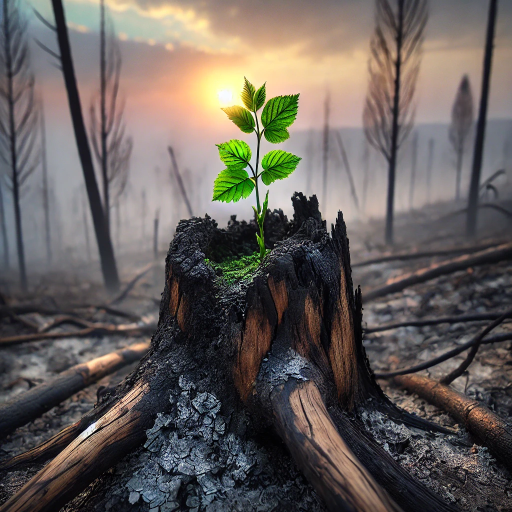The fires raging across Southern California, including the devastating Palisades fire, have left destruction in their wake. Homes and commercial properties have been reduced to ash, lives have been upended, and entire communities face the long road to recovery. Even my mother-in-law was forced to evacuate, a stark reminder of how personal these tragedies can be.
Amid this devastation, I am troubled by the tone of some responses. Dismissiveness and even celebration have emerged in certain circles, driven by perceptions of wealth, geography, and moral judgment. Because the Palisades is a wealthy area, some have shrugged off the suffering. Others go further, claiming these fires are divine punishment for California’s progressive policies on LGBTQ+ rights or for its so-called “moral failings.”
Some have even cited this tragedy as evidence of the “end times,” using the Bible as a justification for their indifference—or worse, their gladness that such destruction has occurred. It’s disconcerting to see faith weaponized in this way, not to offer comfort or hope but to condemn and divide.
I reject the idea that such rhetoric reflects God’s heart. Jesus speaks of our obligation to reflect the Father’s truth in John 8:38 – ‘Out of His heart will flow rivers of living water.’ This means we are called to be sources of refreshment and renewal to others, embodying love, grace, and compassion.
Tragedy is not an opportunity to assign blame or push divisive narratives. It is a call to action. Stand with those who are hurting. Help carry their burdens, as Galatians 6:2 reminds us. Be living examples of love.
While my faith informs my perspective, the shared values of compassion, kindness, and community transcend religious boundaries. This does not water down the message of Christ but recognizes the universality of love and the need to uplift one another, regardless of our differences.
These fires should remind us of our shared humanity. The people affected are not just residents of a wealthy area or representatives of a political ideology—they are parents, children, neighbors, and friends. Our response should reflect the best of our faith traditions: empathy, generosity, and a commitment to helping those in need.
Amid the smoldering ashes, I see hope. Fires, as destructive as they are, also have a cleansing power. They clear the way for new growth, removing the old to make space for the new. This truth is echoed in Scripture, as Isaiah 61:3 speaks of giving “beauty for ashes” and the promise of renewal that follows hardship.
This is our opportunity to rebuild structures, relationships, and communities. It’s a chance to collaborate, get to know one another again, forge new friendships, and deepen our bonds beyond a ‘like and share’ on our devices.
If we embrace love over division and action over apathy, we will emerge stronger, more united, and more compassionate.
That is the essence of true faith.

